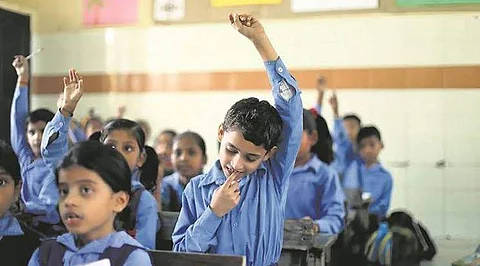

My father always defined my gender to my brothers. He'd say, 'This is your sister; you must take care of her’
— Sandra Cisneros (b.1954), Mexican-American writer
Sandra’s father instructed his sons to take care of their sister. We do not know how much care he himself took of his daughter. It may be a case of a preaching father rather than himself doing according to his preaching. If we presume that fathers and mothers take a joint decision about the type of education their children are given, there is a decisive gender bias in selecting school systems they choose for their male and female children — as reported in The New Indian Express (15/1/20) under the title ‘Gender bias in choosing private schools over government ones: Survey,’ and excerpted here.
The Annual Status of Education Report (ASER), based on a survey to assess learning outcomes in school-going children, has revealed gender disparity in parents opting for private schools over government schools for kids aged 4-8. While nearly 50 per cent boys in the age group go to private play-schools or schools, this percentage is down to 43 per cent for girls, the survey carried out by NGO Pratham said. It also said that early learners in the age group of four to five years who study in anganwadis or government schools are at a disadvantage compared to their counterparts in private schools. ASER has been carried out since 2005, and its findings on the learning outcomes of school-going children are considered significant.
The latest report on early learners said that while by the age of five, most children should be able to perform simple tasks like a four-piece puzzle, children from less-advantaged homes are ‘affected disproportionately’. “Although almost half of the four-year-olds (44.2 per cent) and more than a quarter of all five-year-olds (26.3 per cent) are enrolled in anganwadis, these children have far lower levels of cognitive skills and foundational ability than their counterparts in private LKG and UKG classes,” it says. Cognitive skills refer to a child’s ability to sort, arrange and recognise patterns, while foundational ability refers to the basic knowledge of language and numbers.
The survey covered 36,000 children in 26 districts of 24 states. There are two issues here — the financial ability of parents to send children to private schools and choosing between male and female children within the limited ability and what actually happens when the choice is made.
